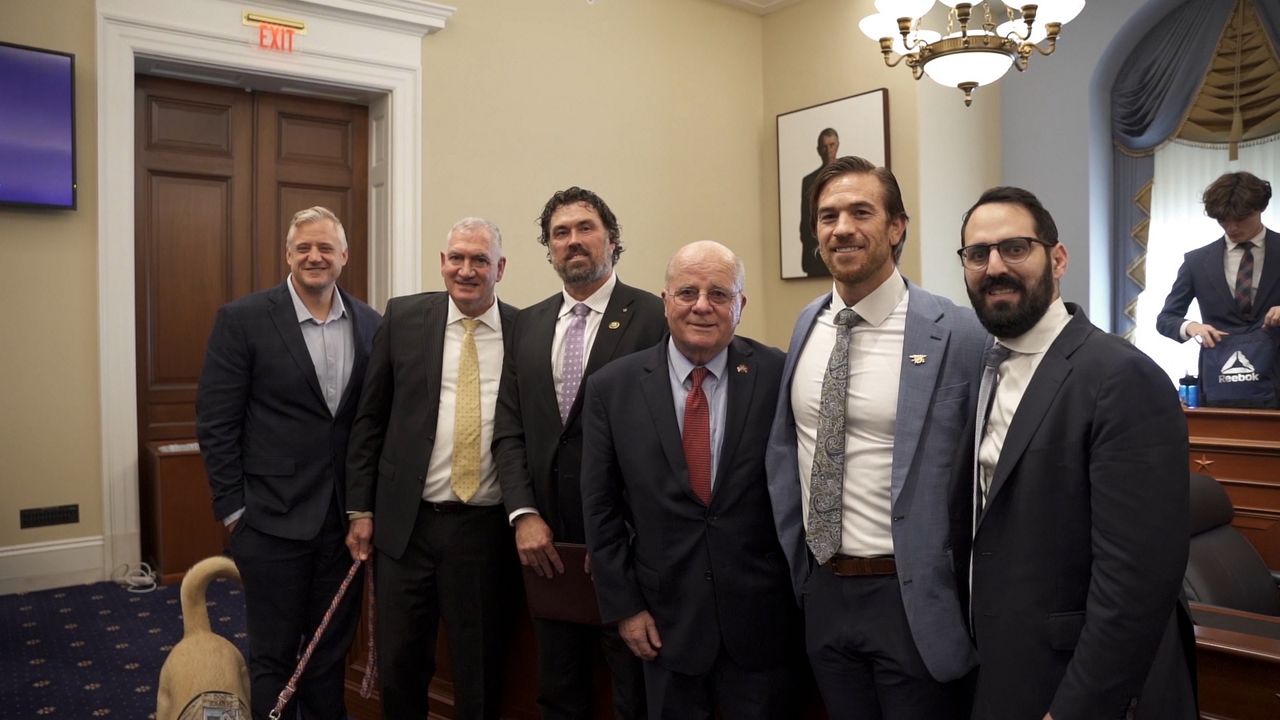As research into the benefits of psychedelic drugs picks up steam, a growing number of people are using psychedelic drugs in search of healing, meaning, or something else. Advocates are ringing the alarm for more support and guidance as the need for mental health resources reaches a fever pitch. National Health Reporter Erin Billups has more in this third installation in her report on finding healing for PTSD.
What You Need To Know
- Psychedelic drugs show promise in treatment for PTSD
- Some veterans are pushing for expanded access to psychedelic drug treatments
- Mental health advocates fight to decriminalize, or even legalize, psychedelics
“Addiction rates were skyrocketing. I mean, the world was literally falling apart,” said Lindsay Kimpel."People were taking other drugs and psychedelics to escape, to cope, to explore in their mind.”
Increased drug use during the pandemic was a crescendo of a larger trend. Over the last decade, the rate of psychedelic drug use more than doubled among 19 to 30-year-olds.
Kimpel is a support line supervisor at Fireside Project, a psychedelic harm reduction service.
“Fireside was really born out of the pandemic and the need for that community,” said Kimpel. “To be supported by someone else in a non-judgmental, compassionate manner.
”Fireside seeks to be a part of a larger infrastructure that better supports the safe use of psychedelic substances," Kimpel said.
“We're probably averaging about almost, if not 1000 calls per month,” said Kimpel. “Since then, starting in April 2021, we have grown significantly.”
Psychedelic drugs can be particularly dangerous for those with uncontrolled serious mental illness.
“There's many contraindications with many different medications and it could exacerbate underlying mental health issues,” said Kimpel.
There is also a risk of acid flashbacks, known as HPPD, which stands for Hallucinogen Persisting Perception Disorder. It is when hallucinations from a past trip return repeatedly, even when sober. It can take place after just one experience with psychedelic drugs.
Kimpel said more services like Fireside are needed, as people get hold of the drugs without a basic understanding of them. The organization’s peer counselors help callers process difficult trips and educate them about the risks.
“If one doesn't take the time to reflect or at least share with somebody else, they might still be trapped in their trauma loop,” said Kimpel.
But as organizations like Fireside adjust to the growing trends, lawmakers on Capitol Hill have yet to move on legislation that would deschedule the drugs - and allow access to scientifically backed psychedelic-assisted therapy.
“This is the only medication I have ever taken in order to right my ship. It was the most horrible experience of my entire life,” said U.S. Representative Morgan Lutrell, of Texas, on Capitol Hill in June.

Congressman Lutrell is a navy veteran and survivor of a helicopter crash that caused traumatic brain injury, during his service. He is part of the Veteran Mental Health Leadership Coalition.
It comprises over 30 organizations trying to change minds in Washington and fight against decades-old stigma. Advocates like Luttrell stress psychedelic drugs are less harmful than other schedule 1 substances.
“There's this misconception that it is going to take to the winds and you're going to find people doing it for fun. There's nothing fun about it at all,” said Luttrell.
The Breakthrough Therapies Act and the Right To Try Therapies Act are among the legislations the coalition is pushing congress to pass.
Brett Waters, founder and CEO of Reason for Hope, said there is an increasing amount of bipartisan support for the bills. Waters’ organization is named for his mother - Hope, who died by suicide.
“My mom was struggling. I can't say for sure that it would have helped or that anything would be different,” said Waters. “It's difficult to know that this kind of information was out there and being generally suppressed.”
Reason for hope is a member of the coalition. Waters says the legislation they are pushing for would also force a change in how psychedelic drugs are classified.
“What we're trying to do here is utilize the FDA's designation or approval process, keep it based on the science to trigger a rescheduling from schedule 1 to schedule 2,” said Waters.
It is a long, obstacle-laden road in Congress. The bills have yet to leave committee. Without direction from Washington several states are taking the matter up piecemeal.
“Schedule 1 barriers are really creating a perverse incentive,” said Waters.
Local governments in Oregon, Connecticut, Washington, Michigan, Massachusetts and Colorado are exploring state or city-wide access to psychedelic drugs or at least decriminalizing its use.
“If the federal government isn't willing to make it easier to do the research and easier for people to access from the healthcare system, we see that states are just going to go forward and do their own thing,” said Waters.
It seems history is repeating itself. Take the lack of federal guidance with cannabis as an example. It has resulted in a complex, disconnected, patchwork of access and care.
While psychedelic medicine may be a new, effective tool when used in the right container, it is also important to acknowledge, there’s still so much we don't understand about the brain, and why hallucinogens may offer healing to some and not others. The research has barely scratched the surface.






